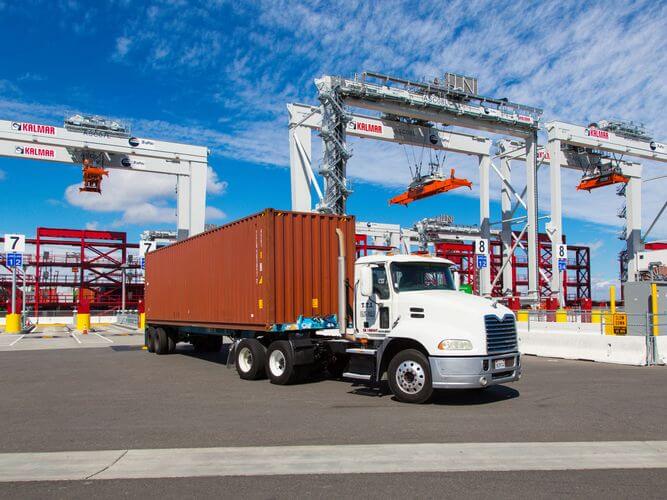
The global business environment is increasingly embracing outsourcing as a strategic tool for achieving efficiency, accessing specialized skills, and enhancing competitive advantage. In this quest for ideal outsourcing destinations, Mexico has emerged as a leading contender, offering a compelling mix of cost-effectiveness, skilled labor, and geographical proximity to the United States.
In this blog post, we aim to provide businesses with the insights needed to unlock Mexico's full potential as a leading outsourcing destination.
The Rise of Mexico as an Outsourcing Powerhouse
Mexico's emergence as a leading outsourcing destination is the result of targeted strategies and investments that have reshaped its economic landscape. The country's focus on enhancing its education system, particularly in STEM fields, has produced a wellspring of skilled professionals ready to serve the global market. Coupled with significant advancements in technology and bolstered by favorable trade agreements like the USMCA, Mexico has solidified its position as an attractive hub for sectors such as manufacturing, IT, and automotive. These industries benefit from Mexico's strategic geographic location, offering nearshoring advantages to North American companies and promoting a synergy that combines quality with cost-effectiveness. The convergence of these factors—education, technology, trade, and strategic industry focus—has not only propelled Mexico's status as an outsourcing powerhouse but also positioned it as a critical player in the international business arena, poised for future growth and further diversification in outsourcing capabilities.
Advantages of Outsourcing to Mexico
Outsourcing to Mexico offers multiple benefits for businesses aiming to boost efficiency, access specialized skills, and stay competitive. Key advantages include:
Cost Efficiency
One of the primary reasons companies opt for outsourcing to Mexico is the significant cost savings it offers. Labor costs in Mexico are considerably lower than in many developed countries, including the United States and countries within the European Union, without compromising the quality of work. This cost-effectiveness extends beyond wages to include lower operational and manufacturing costs, making it an economically attractive option for businesses aiming to optimize their budgets.
Skilled Labor Pool
Mexico has made substantial investments in its education system, particularly in technical and engineering fields, resulting in a robust pool of skilled professionals. This talent reservoir is well-equipped to meet the demands of various industries, from advanced manufacturing and automotive to IT and software development, providing companies with access to a diverse array of specialized skills and expertise. To know more must read Mexico Labor Market 2024: Emerging Trends & Key Challenges.
Geographical Proximity
For North American businesses, Mexico's geographic proximity is a substantial advantage. Nearshoring to Mexico enables companies to enjoy the benefits of outsourcing, such as lower costs, while minimizing the challenges associated with distant offshore destinations, such as significant time zone differences and longer supply chain logistics. This proximity facilitates easier communication, quicker travel times for business meetings, and smoother coordination of operations.
Cultural Affinity
Mexico shares a significant cultural affinity with the United States, which eases business interactions and integration. The similarity in business practices, working hours, and holidays, as well as a high level of English proficiency among professionals, contributes to smoother collaborations and project management.
Free Trade Agreements
Mexico's network of free trade agreements, most notably the United States-Mexico-Canada Agreement (USMCA), enhances its attractiveness as an outsourcing destination. These agreements provide economic benefits such as tariff-free exports to major markets, fostering a conducive environment for international trade and investment.
Growing Tech Hub
Mexico is rapidly becoming a hub for innovation and technological advancement, particularly in fields like software development, automotive technology, and aerospace engineering. This environment not only supports cutting-edge projects but also attracts global talent looking to engage in dynamic and innovative workspaces.
Stable Economic and Political Climate
Mexico's efforts to maintain a stable economic and political environment further bolster its appeal for outsourcing. Continuous improvements in infrastructure, coupled with policies aimed at encouraging foreign investment, make Mexico a reliable and promising country for long-term business partnerships.
Mexico's Prime Outsourcing Sectors
Mexico's reputation as a leading destination for outsourcing has been bolstered by its strong performance across several key industries. Here are some of Mexico's prime outsourcing sectors:
- Mexico: A Manufacturing Powerhouse
The backbone of Mexico's outsourcing appeal, the manufacturing sector, particularly in automotive, aerospace, electronics, and textiles, has seen substantial growth. The country's strategic location, skilled labor, and cost-effective production capabilities make it an attractive manufacturing hub for companies worldwide. For further information you must read: Manufacturers in New Mexico. - Information Technology (IT) and Software Development
Mexico has rapidly emerged as a significant player in the IT and software development arena. With a burgeoning talent pool of programmers, developers, and IT professionals, the country offers services ranging from software development to IT support and cybersecurity solutions. - Customer Service and Back-office Support
Outsourcing in telecommunications, including customer service, technical support, and back-office operations, has been a growing sector in Mexico. The country's bilingual workforce and cultural affinity with the U.S. make it a preferred choice for companies looking to outsource these services. - Medical Devices and Pharmaceuticals
Mexico has become a leading destination for the manufacturing of medical devices and pharmaceutical products. The country offers a combination of skilled professionals in biotechnology and pharmaceutical fields, competitive costs, and strict adherence to international quality standards. - Creative and Digital Media
With digital transformation accelerating globally, Mexico has also seen growth in creative and digital media outsourcing, including animation, graphic design, and digital marketing. The creative industry benefits from Mexico's rich cultural heritage and innovation in digital technologies.
These sectors underscore Mexico's diverse and growing outsourcing capabilities, reflecting its evolution from a manufacturing-centric economy to a multifaceted hub for high-value services.
Challenges and Considerations
Despite the advantages, companies should navigate potential hurdles with strategic planning:
- Cultural and Business Practices: Understanding local business etiquette and establishing clear communication are crucial for successful partnerships.
- Legal and Regulatory Landscape: Companies must acquaint themselves with Mexico's labor laws, intellectual property rights, and data protection regulations to ensure compliance and protect their interests.
- Infrastructure Variability: While major cities boast advanced technological infrastructure, remote areas may not offer the same level of connectivity, a crucial aspect to consider for IT outsourcing.
Mexico's Outsourcing Regulations
When establishing or expanding outsourcing operations in Mexico, understanding the country's legal and regulatory framework is essential. Below, we delve into crucial legal and regulatory aspects that businesses must navigate.
Employment Legislation and Outsourcing Rules
The Mexican Federal Labor Law (Ley Federal del Trabajo) governs employment relationships, setting standards for minimum wages, work hours, and termination protocols. Recent legislative updates have introduced stringent controls on outsourcing, specifically banning the subcontracting of personnel solely to dodge employer obligations. Businesses engaging in outsourcing must carefully comply with these regulations, ensuring workers are correctly classified and labor rights are fully observed.
Tax Considerations in Outsourcing
Outsourcing operations in Mexico are subject to specific tax requirements. The Mexican Tax Administration Service (SAT) aims to curb tax evasion linked to outsourcing practices. Firms are required to fulfill their tax duties, including those related to income tax and Value Added Tax (VAT) on outsourced services. Maintaining thorough documentation and meeting tax filing requirements are vital to circumvent fines and facilitate operational continuity.
Data Privacy and Protection
The Federal Law on the Protection of Personal Data Held by Private Entities (LFPDPPP) dictates the handling of personal data in Mexico. Outsourcing companies must guarantee that their Mexican partners are in full compliance with data protection regulations, preventing unauthorized access and data breaches through adequate security measures and transparent data processing notifications to individuals.
Intellectual Property (IP) Protection
Safeguarding intellectual property rights is paramount for businesses outsourcing to Mexico. The management of IP rights, including patents, trademarks, and copyrights, falls under the purview of the Mexican Institute of Industrial Property (IMPI). Agreements with outsourcing providers should explicitly address IP protection, specifying ownership rights over newly created IP and procedures for addressing IP violations.
Adherence to International Norms
Companies operating within Mexican borders should also consider adherence to global standards and certifications, especially for serving international markets. This encompasses ISO standards, IT security protocols such as ISO/IEC 27001, and sector-specific regulations like the Health Insurance Portability and Accountability Act (HIPAA) for outsourcing in the healthcare domain. Partnering with entities in Mexico that comply with these international benchmarks is crucial for upholding quality and regulatory compliance across national boundaries.
Environmental Compliance
For companies outsourcing manufacturing or other environmentally impactful processes, adherence to Mexico's environmental regulations is non-negotiable. This includes observing environmental standards, adhering to waste management laws, and engaging in sustainable practices to operate ethically and avoid legal issues.
Understanding USMCA Impact
The transition from NAFTA to the United States-Mexico-Canada Agreement (USMCA) has implications for outsourcing arrangements, especially concerning manufacturing and digital commerce. Businesses must familiarize themselves with how USMCA influences their operations, including origin rules, digital commerce regulations, and the management of cross-border data transfers.
Best Practices for Outsourcing in Mexico
Outsourcing in Mexico has become a pivotal strategy for many multinational corporations and startups, aiming to leverage the country's skilled workforce, favorable cost structures, and strategic geographic location. Here are some highlights of these achievements and the best practices that have led to successful outsourcing partnerships in Mexico.
- Cultivating Trust and Mutual Respect Successful companies emphasize the importance of building trust and mutual respect with their Mexican partners. This involves clear communication, understanding cultural nuances, and setting mutual goals. Establishing a solid foundation of trust enhances collaboration and helps navigate challenges more effectively.
- Adapting to Local Contexts: Understanding and adapting to Mexico's business culture and regulatory environment is crucial. Companies that take the time to learn about local practices and legal requirements tend to navigate the outsourcing process more smoothly and establish more productive partnerships.
- Investment in Technology and Training: Investing in the latest technology and ongoing training for outsourced teams in Mexico can significantly boost productivity and innovation. Access to cutting-edge tools and continuous skill development ensures that the outsourced workforce remains competitive and aligned with the company's evolving needs.
- Engaging in Fair Practices: Adopting fair labor practices and ensuring compliance with local employment laws are not only about legal compliance but also about fostering a positive work environment. This approach contributes to higher employee satisfaction, lower turnover rates, and a better reputation among potential partners and clients.
- Strategic Integration: Integrating the outsourced operations seamlessly with the rest of the company's functions is vital. This involves regular communication, shared objectives, and using technology to ensure that teams, whether on-site or remote, work towards common goals in a cohesive manner./li>
- Long-term Partnerships: Viewing outsourcing partners in Mexico as long-term collaborators rather than temporary vendors can lead to more significant benefits. Long-term relationships encourage ongoing improvement, deeper understanding of business goals, and a stronger alignment with strategic objectives.
Through careful planning, respectful engagement, and strategic investment, companies can forge successful outsourcing partnerships in Mexico.
Conclusion
Mexico stands as a beacon of opportunity. By understanding the intricacies of Mexico's outsourcing regulations, leveraging its diverse talent pool, and embracing best practices, companies can unlock the full potential of outsourcing in Mexico and pave the way for sustainable success in today's global economy.
Explore Mexico's Outsourcing with SIXM
SIXM invites you to explore the boundless opportunities awaiting your business in Mexico's outsourcing realm. Let us guide you through the intricacies of regulations, harness the nation's skilled workforce, and elevate your operations to new heights of efficiency and success. With SIXM as your strategic sourcing partner, the future of outsourcing in Mexico is bright and promising. Reach out today and let's embark on this transformative journey together. Your success story starts with SIXM.
References
Mexico: SAT-ID and OrientaSAT for improved taxpayer service and compliance
United States-Mexico-Canada Agreement

